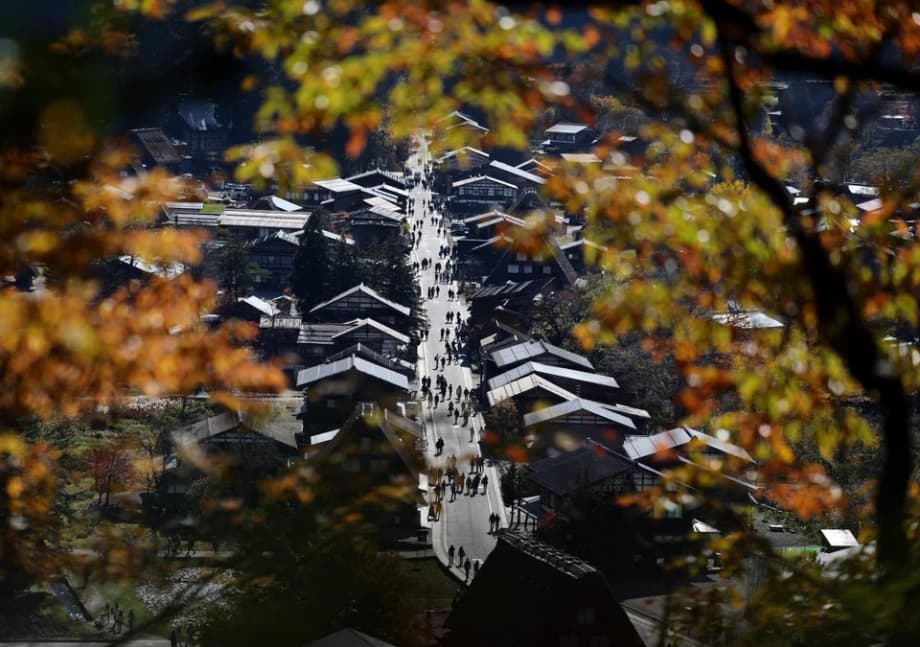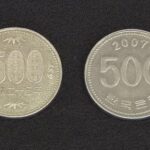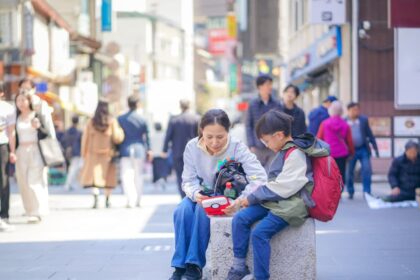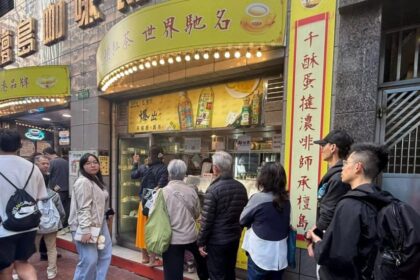A tourism shock as politics interrupts travel
Japan is bracing for a sharp fall in visitor spending as hundreds of thousands of Chinese travelers cancel trips following a diplomatic dispute. Roughly 30 percent of the 1.44 million China to Japan journeys planned through December have been scrapped after Beijing advised citizens to avoid Japan. Market data points to an immediate shortfall of at least 500 million dollars in the final weeks of the year, with the total loss possibly reaching 1.2 billion dollars if cancellations continue to ripple through peak year end travel.
- A tourism shock as politics interrupts travel
- Why relations frayed and how politics spilled into travel
- How big is the hit and where it lands
- Tours and tickets, how travelers and companies are responding
- Travelers reroute across Asia
- Luxury shopping pause and the weak yen factor
- How long could the chill last
- What travelers should know about the advisory
- Key Points
Most cancellations hit near term departures. New bookings have stalled. Air routes linking Shanghai, Beijing and Guangzhou with Tokyo and Osaka are bearing the brunt. Group and package tours, a mainstay of outbound China travel, account for up to half of the lost volume, with individual leisure trips making up about one fifth to one quarter of the decline.
The scale inside airline systems is stark. Chinese carriers have logged around 491,000 ticket cancellations for Japan services in a matter of days, equal to roughly one third of their bookings on those routes. Several airlines are offering full refunds or free changes for tickets through December 31, which removes any financial friction to cancel or postpone.
The pullback lands at a sensitive moment for Japan. The country had restored record traffic on the back of a weak yen that made shopping and hotels cheaper for foreign visitors. Chinese travelers account for about a quarter of annual arrivals and around 27 percent of inbound spending in the third quarter. For now, the wave of cancellations is concentrated in late 2025. Bookings for January remain relatively stable, an early sign that many travelers still hope for a thaw.
Why relations frayed and how politics spilled into travel
The trigger sits in politics. Prime Minister Sanae Takaichi told lawmakers that a Chinese use of force against Taiwan that threatened Japan could prompt a Japanese military response. Beijing rejected the remarks and moved quickly. The Foreign Ministry issued a travel advisory warning citizens to avoid trips to Japan, citing public security concerns. Other agencies, including the ministries of Education and of Culture and Tourism, issued similar alerts. China also expanded other pressure points, including the suspension of some seafood imports.
At a regular briefing, Chinese Foreign Ministry spokeswoman Mao Ning repeated Beijing's position and demanded a reversal. She framed the dispute in terms of core national interests.
Japan must retract its erroneous remarks, repent and change course, offering a clear and satisfactory answer to the Chinese people.
Tokyo has said the prime minister's comments align with existing policy. The government also urged Japanese citizens in China to be cautious and avoid crowded places. The tone hardened in Chinese state outlets, with warnings that any Japanese military involvement in a Taiwan conflict would carry severe consequences. The sum of those messages chilled travel sentiment almost overnight.
How big is the hit and where it lands
Market researchers tracking transactions and bookings estimate that the current wave of cancellations will remove at least 500 million dollars in spending from Japan this quarter, with a realistic risk of 1.2 billion dollars if the advisory remains in effect through the year end holidays. Chinese tourists have been spending more than 900 million dollars per month in Japan in recent months, which shows how fast the numbers add up when traffic slows.
The potential cost rises if tensions linger. One well known economic research house calculates that a sustained decline in Chinese visitors could shave about 0.36 percent from Japan's gross domestic product. That would translate to roughly 2.2 trillion yen of lost activity on a yearly basis. Separate travel data suggest a cumulative hit of up to 9 billion dollars by 2026 if the chill endures across multiple seasons.
Exposure varies by sector. Hotels that serve large tour blocks around Tokyo, Osaka and Hokkaido take early losses when buses and guides are canceled. Retailers that rely on tax free shopping by Chinese customers feel the second wave when footfall and luxury receipts drop. Airlines on both sides face revenue pressure on mainland China to Japan routes.
Financial markets have tried to price the change in demand. Japanese tourism linked shares fell after the advisory. A leading cosmetics group dropped around 3 percent in one session. A major airline slipped about 1 percent, and a top department store operator eased modestly. The broader Nikkei 225 index fell more than 3 percent on one day of heavy selling.
Tours and tickets, how travelers and companies are responding
Chinese travel agencies have moved in lockstep with the advisory. Several large state owned firms halted sales of tours to Japan and scrapped group bookings scheduled for December, even those arranged months earlier. Hotels in Japan are reporting cancellations or postponements from Chinese corporate clients, and some university visits for prospective students have been called off.
Airlines have tried to accommodate uncertain travelers. The three largest mainland carriers and others are allowing free refunds and itinerary changes for Japan flights booked through the end of the year. Within days of the warning, cancellations surged, and the rush was concentrated on Shanghai to Tokyo and Shanghai to Osaka services. Capacity adjustments often follow if the trend holds.
Independent aviation analyst Li Hanming has been tracking the data spike and said the cancellation ratios are without precedent in recent years.
The flight ticket cancellations on Sunday were 27 times that of new bookings, which shows safety concerns are the dominating factor for travel.
John Grant, a senior analyst with aviation intelligence firm OAG, expects carriers based in China to suffer the deeper revenue hit because they carry the largest share of traffic in this market.
The China to Japan market is dominated by Chinese based airlines, so the likelihood is that this will hurt those carriers more than the Japanese based airlines.
On the ground in Tokyo, tour operators that cater to Chinese groups are absorbing sharp reversals. Yu Jinxin, vice president of East Japan International Travel Service, described the strain on her small company.
This is a huge loss for us. If this lasts for one or two months, we can manage, but if the situation continues to worsen, it will obviously have a major impact on our business.
Travelers reroute across Asia
Travel demand from China did not vanish, it shifted. New bookings to Singapore and South Korea have climbed by up to 15 percent, according to travel data firms. Thailand, Malaysia and Vietnam are also seeing growth in the range of high single digits to low double digits.
This rerouting spreads the spending and the strain. Hotels and airports in Seoul and Singapore can expect fuller rooms and busier terminals during the winter peak. Coastal Thai destinations and major Malaysian and Vietnamese cities may also see more Chinese tour groups as agencies pivot packages.
Luxury shopping pause and the weak yen factor
A weak yen supercharged cross border shopping in 2024 and 2025. That trend carried into the third quarter, when Chinese visitors accounted for about 27 percent of inbound spending in Japan and averaged roughly 240,000 yen per trip. Chinese luxury purchases overseas rose to roughly 120 percent of pre pandemic levels, and Japan was a prime beneficiary.
Cancellations now threaten that haul. Analysts tracking payment networks estimate that luxury purchases in Japan by Chinese travelers could fall by as much as 600 million dollars this year. Department stores that sell high end watches, beauty brands, and designer goods, along with city center boutiques, will feel the shortfall first.
Some of that spend will not disappear, it will reappear in Seoul, Singapore or Bangkok until travel preferences normalize. Pricing for many goods remains competitive in Japan, but the current advisory has reduced the perceived convenience of a Japan shopping run for many Chinese consumers.
How long could the chill last
Forecasting demand is tricky in a political dispute. The current wave of cancellations is concentrated in late 2025. Data firms say bookings for January are steady for now. That suggests many travelers are waiting to see whether the rhetoric cools in the new year.
Some academics who study China warn that deeper policy steps are possible if relations worsen. They point to tools such as formal restrictions on group tours or caps on flight capacity. Those measures have been used in past disputes with other countries.
Airlines will watch the booking curves over the next few weeks. If demand remains weak, carriers may cut frequencies in the winter and redeploy aircraft to stronger markets. That would preserve load factors but could raise fares for non Chinese travelers who still plan a trip to Japan during the peak holiday period.
What travelers should know about the advisory
The Chinese government has advised citizens to avoid travel to Japan. It is a recommendation, not a blanket legal ban on individual travel. The advisory has a powerful effect on group and package tours because state owned agencies and many private firms align their offerings with official guidance.
Travelers who had booked with Chinese airlines can seek refunds or changes, often at no cost for tickets issued for travel through December 31. Policies can change quickly, so passengers should confirm rules with their airline or travel agency before making a decision. For those already in Japan, the advisory urges caution and safety awareness. Japan, by global measures, maintains a high baseline of public safety.
Key Points
- About 30 percent of 1.44 million planned China to Japan trips have been canceled through December after a travel advisory.
- Estimated spending loss is at least 500 million dollars, with risk up to 1.2 billion dollars in 2025.
- Roughly 491,000 Japan tickets were canceled on Chinese carriers within days of the advisory.
- Group tours comprise up to half of the lost travel volume, with individual leisure about one fifth to one quarter.
- Chinese visitors account for about a quarter of arrivals and 27 percent of inbound spending in the third quarter.
- Airlines are offering free refunds or changes for Japan flights booked through Dec 31.
- Major Chinese travel agencies paused Japan tour sales and scrapped December groups.
- Japanese tourism related shares fell, and the wider market dropped more than 3 percent on one day of heavy selling.
- Booking demand is shifting to Singapore and South Korea by up to 15 percent, and to Thailand, Malaysia and Vietnam.
- Luxury spending in Japan by Chinese travelers could fall by up to 600 million dollars this year.
- If tensions persist into 2026, the cumulative loss could approach 9 billion dollars.
- January bookings are stable so far, suggesting hopes for an easing of tensions.












